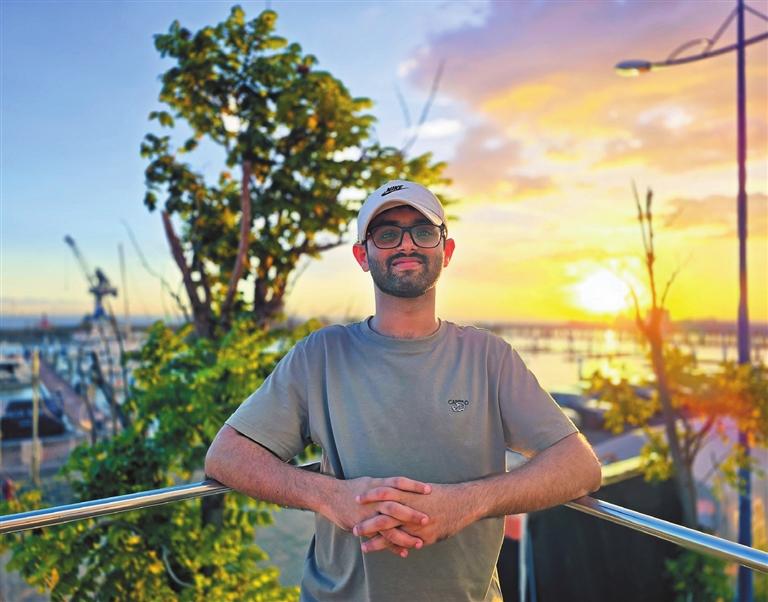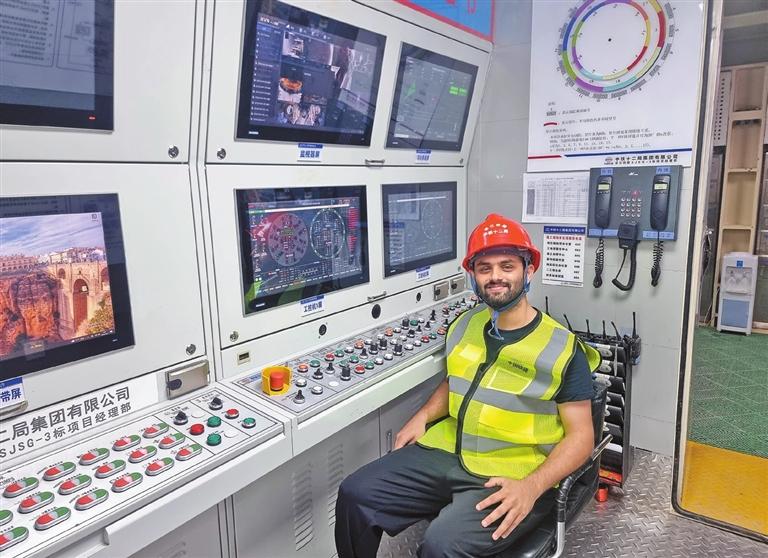

Lian Jiaqi 403950598@qq.com IN September 2023, Pakistani student Muhammad Shahroz Khalid enrolled in a doctoral program for geotechnical engineering at Shenzhen University, aiming to study how advanced underground infrastructure is planned, monitored, and built in a smart city. “Shenzhen stood out to me not only for its rapid modernization but also for its global reputation as a leading smart city,” Khalid said. “Pakistan faces challenges in urban construction and underground space utilization, so I was keen to learn from China’s expertise.” Since arriving, Khalid has focused on research that bridges laboratory work and real-world applications. By combining experimental testing and numerical simulation of these projects, Khalid has learned more in the field of geotechnical engineering. Early efforts examined the impacts of vibrations from subways and high-speed trains on nearby buildings and soil, aiming to predict and mitigate long-term damage. Khalid’s team is also contributing to analysis of the Guangming District landslide, probing complex failure mechanisms and preventive strategies for urban development. In Khalid’s eyes, Shenzhen’s technical ecosystem has been a major draw. He noted the city’s pioneering use of AI for real-time monitoring of underground structures and its practice of “building downward” to maximize scarce land. “The blend of geotechnical engineering with smart technology here is inspiring,” he said, calling Shenzhen a laboratory for large-scale engineering innovation. Local sponge-city measures have also shaped the student’s research interests. Around campus, permeable pavement, rain gardens, and bioswales provide living examples of how geotechnical design affects urban water management. “From a geotechnical perspective, we study how different soil types retain or drain water and how subgrade layers should be engineered to ensure both stability and permeability,” Khalid explained. In addition to study, life in Shenzhen has also offered cultural learning alongside technical training. Initially surprised by the lighter flavors of Cantonese cuisine compared with spicy Pakistani dishes, Khalid has embraced local favorites such as hotpot and barbecue. Daily life has also required adaptation to mobile payments and WeChat. Memorable moments include sharing mooncakes with classmates during Mid-Autumn Festival and receiving a red envelope from a professor for Chinese New Year. The Pakistani student suggested Shenzhen could further promote halal food options to better accommodate Muslim residents and visitors. Comparing education systems, Khalid noted that Pakistani programs emphasize strong fundamentals but sometimes lack access to advanced laboratory facilities and large infrastructure projects. In contrast, Shenzhen’s close links between research and industry, extensive projects, and advanced monitoring tools provide richer practical training. As Shenzhen accelerates its infrastructure ambitions, international students like Khalid find the city both an academic crucible and a cultural classroom where cutting-edge geotechnical research intersects with the rhythms of everyday urban life. | 
